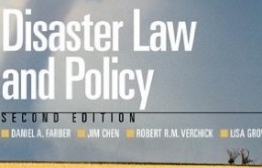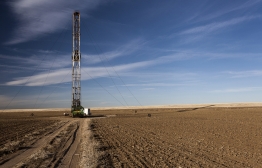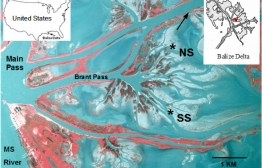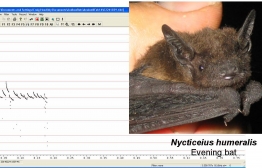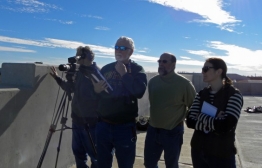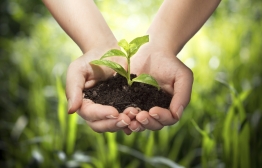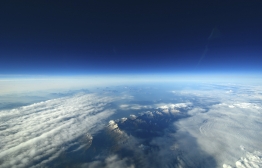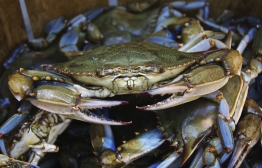As a Loyola student, you have the opportunity to work alongside our talented professors to partner in collaborative research. Learn more about some recent research and projects currently underway.
Robert Verchick's Recent Publications and Presentations on Environmental Law
This year (2015-16) Robert Verchick a faculty member in the Environment Program has written and published a variety of works on Environmental Law. Robert has also spoke on many important environmental topics here in the US and internationally. See more detailed information below:
Books
Disaster Law and Policy (WoltersKluwer/Aspen 3d ed. 2015) (with Daniel A. Farber, Jim Chen, & Lisa Grow Sun)
Feminist Legal Theory (NYU Press 2d ed. 2016) (with Nancy Levit and foreword by Martha Minow)
Book Chapters
"Environmental Law", in Cuban Legal System, (Thomas Reuters Publishing, José Cot & Rolando Anillo eds., 2016) (in press)
"Disaster Law and Climate Change", in Climate Change Law, (Edward Elgar Publishing, Daniel A. Farber & Marjan Peeters eds., 2016)
"Natural Disaster and Climate Change", in International Environmental Law and the Global South: Comparative Perspectives, 491-507 (Shawkat Alam, Sumudu Atapattu, Carmen G.Gonzalez, & Jona Razzaque eds., Cambridge University Press 2015) (with Paul Govind)
Law Review Article
"Culture, Cognition, & Climate," 2016 University of Illinois Law Review -- (in press)
Policy Papers
"Climate Change, Resilience, and Fairness: How Nonstructural Adaptation Can Protect and Empower Socially Vulnerable Communities on the Gulf Coast" (Center for Progressive Reform 2016) (with Carmen Gonzalez, et al.)
Op-Eds
"Time for Communities to Face Climate Change," Advocate (New Orleans), Apr. 14, 2016
"VW and GM Scandals Show Why Regulation Matters," The Hill (Washington, D.C.), Sept. 30, 2015 (with Rena Steinzor)
"Katrina’s Lessons: Learned and Unlearned," Houston Chronicle, Aug. 28, 2015
Presentations
Oxford University, All Soul’s College (Oxford, U.K.), Workshop: Regulating the Energy
Transition; presented "Lights Out: Energy, Resilience, & Fairness" (June 2016)
Law and Society Association Annual Meeting, panel; presented "Lights Out: Energy,
Resilience, and Fairness" (May 2016)
Law and Society Association Annual Meeting, panel; presented "Bridge Under Troubled
Water: Climate Resilience and Fairness" (May 2016)
Law and Society Association Annual Meeting, panel, “The Coming Era of Gender Inequality”
(May 2016)
University of Kansas (Lawrence, KS), Symposium, "Justice in the Low-Carbon Transition,"
panelist (April 2016)
Loyola University New Orleans, Conference on Coastal Resilience (co-sponsored with
Oxfam America), Moderator, "Non-Structural Tools for Adaptation" (April 2016)
State of the Coast Conference (New Orleans, LA); presentation: “Climate Change, Resilience,
and Fairness” (April 2016)
Loyola University New Orleans (New Orleans, LA), Conference: Beyond the Levees
(sponsored by Loyola Center for Environmental Law, Oxfam America, and Center for
Progressive Reform); presentation: “Climate Change, Resilience, and Fairness” (April 2016)
University of Georgia (Athens, GA), Keynote Address at Red Clay Conference; presented
"Bridge Under Troubled Water: Climate Resilience and Transportation" (Feb. 2016)
Tulane University (New Orleans, LA), Environmental Law Summit, panelist; presented
"Culture, Cognition and Climate" (Feb. 2016)
Tulane University (New Orleans, LA), Environmental Law Summit, Moderator, "Waters of
the United States" (Feb. 2016)
University of Florida (Gainesville, FL), lecture "Climate and Coastal Retreat" (Jan. 2016)
University of Florida (Gainesville, FL), faculty colloquium "Culture, Cognition, and Climate"
(Jan. 2016)
Annual Meeting of Association of American Law Schools (New York, NY), panel,
“International Environmental Law and the North-South Divide: Crossroads of Economic,
Environmental, Human Rights, Energy, Food, Climate, and Sustainable Development Law”
(Jan. 2016)
Dr. Anthony Ladd's Recent and Forthcoming Publications and Presentations on Fracking
Professor Ladd’s research has yielded many publications and invitations to speak, which include:
Ladd, Anthony E. (ed). 2017. Fractured Communities: Risk, Impacts, and Protest Over Hydraulic Fracking in U.S. Shale Regions. New Brunswick, NJ: Rutgers University Press (forthcoming).
Ladd, Anthony E. 2017. “Motivational Frame Disputes Surrounding Natural Gas Fracking in the Haynesville Shale.” Forthcoming in Anthony E. Ladd (ed.), Fractured Communities: Risk, Impacts, and Protest Over Hydraulic Fracking in U.S. Shale Regions. Brunswick, NJ: Rutgers University Press.
Ladd, Anthony E. 2016. “Meet the New Boss, Same as the Old Boss: The Continuing Hegemony of Fossil Fuels and Hydraulic Fracking in the Third Carbon Era.” Humanity and Society 40: (doi: 10.1177/0165976166).
Ladd, Anthony E. Advisory Board, 2016-2019. “Hazards SEES: The Risk Landscape of Earthquakes Induced by Deep Wastewater Injection.” National Science Foundation Grant. Dr. Abbie Liel (PI) & Drs. Ann Sheehan and Liesel Ritchie (Co-PIs), Natural Hazards Center, University of Colorado, Boulder.
Ladd, Anthony E. Co-PI, 2016-2020. “Understanding the Social Impacts of Extreme Energy Extraction in the U.K.” Submitted to the Economic and Social Research Council, Drs. Michael Long & Paul Stretesky, (PIs), Dr. Duane A. Gill & Dr. Liesel A. Ritchie (Co-PIs). Grant proposal under review.
Anthony E. Ladd Organizer/Facilitator, “Fractured Landscapes: Wastewater Injection, Induced Seismicity, and Environment Injustice Surrounding Oil & Gas Fracking on the Western Plains.” Association for Humanist Sociology meetings, November 2-6, 2016, Denver, CO.
Anthony E. Ladd and Charles Perrow. “Institutional Dilemmas of Hydraulic Fracking: Economic Bonanza, Renewable Energy Bridge, or Gangplank to Disaster? American Sociological Association meetings, August 20-24, 2016, Seattle, WA.
Anthony E. Ladd Organizer/Facilitator, film screening of “Merchants of Doubt”; Organizer/Facilitator, “Emerging Issues in Environmental Sociology session, Association for Humanist Sociology meetings, October 21-25, 2015, Portland, OR.
Ladd, Anthony E. 2014. “Environmental Disputes and Opportunity-Threat Impacts Surrounding Natural Gas Fracking in Louisiana.” Social Currents 1(3): 209-228.
Ladd, Anthony E. 2013. “Stakeholder Perceptions of Socio-Environmental Impacts From Unconventional Natural Gas Development and Hydraulic Fracturing in the Haynesville Shale.” Journal of Rural Social Sciences 28(2): 56-89.
Anthony E. Ladd, “Meet the New Boss, Same as the Old Boss: Fossil Fuels, Fracking, and the Third Carbon Era.” Association for Humanist Sociology meeting, October 9-12, 2014, Cleveland, Ohio.
Anthony E. Ladd, “Unconventional Energy Development, Hydraulic Fracking, and The New Carbon Era:Ecological Modernization or Risk Society?” American Sociological Society meetings, August 16-19, 2014, San Francisco, CA.
Anthony E. Ladd, “Don’t Frack With Our Water: Stakeholder Perceptions of Negative Impacts Associated with Hydraulic Fracturing in the Haynesville Shale.” Association for Humanist Sociology meetings, October 9-13, 2013, Arlington, VA.
Anthony E. Ladd, “Frame Disputes and Opportunity-Threat Impacts Surrounding Hydraulic Fracturing in the Haynesville Shale.” American Sociological Association meetings, August 10-13, 2013, New York City.
Anthony E. Ladd, “Meet the Frackers: Framing Support for Hydraulic Fracturing in the Haynesville Shale Formation of Northwest Louisiana.” Midwest Sociological Society meetings, March 27-30, 2013, Chicago, IL.
Water Quality Change in the Mississippi River
Dr. David A. White and Dr. Jenneke M. Visser published an article "Water quality change in the Mississippi River, including a warming river, explains decades of wetland plant biomass change within its Balize delta." Aquatic Botany 132 (2016) 5-11.
Highlights
•Wetlands in the Mississippi River’s Balize Delta, USA showed an overall plant biomass increase with a large inter-annual change from 1988–2008.
•River discharge and sediment negatively impacted the biomass over these decades, whereas river temperature had a positive impact.
•The decadal plant biomass likely increased because of the impact of a 0.9 °C/decade increase in river temperature on growing season length.
•The added river temperature increased the growing season 0.7 days each year from 1983–2012, or 14.7 days over the shorter biomass study period.
•Climate change and land use/cover change in the catchment are likely responsible for the river and wetland biomass change in the Balize Delta.
Abstract
Ecosystem properties of riverine wetlands are known for high inter-annual variability. This multi-decadal study within the wetland complex of the Mississippi River’s Balize Delta, USA assesses how river parameters (temperature, discharge, and sediment load) impact wetland plant biomass over time and space. The Mississippi River’s annual temperature has increased 0.9 °C/decade, while discharge and sediment load has varied without trend over the same period. End-of-season herbaceous biomass increased 14 g/m2/year between 1988 and 2008, extrapolating to large (m-ton) area-wide increases. The river’s temperature, discharge and sediment impacted the Delta’s biomass in two ways: the increase in temperature had a positive impact on the growing season length which increased biomass; whereas discharge and load had negative impacts affecting the inter-annual variation without a temporal trend. The results explain natural variability in ecosystem processes in a dynamic deltaic system and likely trace a signal related to both climate warming and land use change within the drainage of the Mississippi River. The discovered decadal increase in herbaceous biomass has implications on carbon storage in the inshore and offshore receiving basins of the world’s riverine wetlands experiencing longer growing seasons.
Mammal Biodiversity and Ecology
Biology students working under the direction of Dr. Craig Hood have helped assess mammal biodiversity, population ecology, and activity patterns of the Barataria Preserve of Jean Lafitte National Historical Park. Prior to Hurricane Katrina in 2005, Dr. Hood conducted his first formal mammal survey of the Barataria Preserve. This newest assessment shows comparisons between data and activity patterns.
MRGO-ing, Going, Gone
Documentary film, MRGO-ING, GOING, GONE, a decade in the making, reveals the backstory of the Mississippi River Gulf Outlet—the infamous and now closed 76-mile shipping channel implicated in the catastrophic flooding following Hurricane Katrina. Produced by the Loyola University New Orleans Center for Environmental Communication and e/Prime Media, it’s a story of wetlands destruction, coastal erosion, flooding, political wrangling and mismanaged public resources. A free, public screening of the documentary was held on Wednesday, Oct. 23 at 7 p.m. at the Chalmette Cinema located at 8700 W. Judge Perez Dr. The documentary premiered on New Orleans public television station WYES on October 20 and has since aired several times.
Filmmakers Bob Thomas, Ph.D., director of the Loyola Center for Environmental Communication, and Kevin McCaffrey, executive producer of e/Prime Media, interviewed more than 30 experts, including many who witnessed some of the most distressing environmental consequences of the shipping channel in St. Bernard Parish. The film also features The Lens reporter and Pulitzer Prize-winning environmental journalist Bob Marshall. Though the Mississippi River Gulf Outlet was closed in 2009, the nation could potentially spend billions of dollars repairing the damage caused by it, according to experts interviewed in the documentary.
Elucidating the mechanisms and physiological significance of rapid changes in epidermal UV-shielding in plants
Anne Barkley (Environmental Studies Minor) was awarded a Louisiana Board of Regents S.U.R.E. grant which allowed her to work under faculty mentorship of Professor Paul Barnes (Biological Sciences) to conduct a study on the effects of UV light on plant growth during the 2013-2014 academic year.
United Nations Environment Programme Environmental Effects Assessment Panel
Biological Sciences Professor Paul Barnes joined an elite team of scientists from around the world on the United Nations Environment Programme’s Environmental Effects Assessment Panel to investigate the latest effects of stratospheric ozone depletion, which will culminate in a report published once every four years. In Feb. 23-March 3, 2014 the committee met in Cuernavaca, Mexico, to detail how additional UV rays seeping through the Earth’s atmosphere affect human health, manufactured materials, ecological systems, climate change and other areas. The group will meet again this August in Zhengzhou, China. Barnes’ contribution to the international research effort focuses on what happens to plants and ecosystems under the diminished ozone layer. Ozone depletion and the resulting increased UV could affect things like how fast dead plant material decomposes—ultimately affecting the availability of vital nutrients for plants and soil. Plants exposed to more of the sun’s harmful rays also react by adding more “sunscreen” chemicals to their leaves for protection, according to Barnes. Those consequences have a complicated domino effect on the entire ecosystem, disruptively flowing through the entire food chain. For example, when plants change chemically for sun protection, it can affect the herbivores that eat the plants, according to Barnes. Barnes also lent his expertise to the European Union March 30 in Bled, Slovenia. He acted as an outside evaluator, providing feedback on UV and climate change research funded by the EU. Barnes will work with the European Cooperation in Science and Technology, which coordinates nationally funded research for Europe.
Relevant web sites:
http://ozone.unep.org/new_site/en/assessment_panels_bodies.php?committee_id=8
http://www.cost.eu/
Associated publications and presentations by Dr. Barnes include:
Barnes, P.W., H.L. Throop, S.R. Archer, D. D. Breshears, R.L. McCulley, and M.A. Tobler. 2014. Sunlight and soil-litter mixing: drivers of litter decomposition in drylands. Progress in Botany (In Press).
Wargent, J.J., B.C.W. Nelson, T.K. McGhie, and P.W. Barnes. 2014. Acclimation to UV-B radiation and visible light in Lactuca sativa involves up regulation of photosynthetic performance and orchestration of metabolome-wide responses. Plant, Cell & Environment (In Press).
Barnes, P.W., A.R. Kersting, S.D. Flint, W. Beyschlag, and R.J. Ryel. 2013. Adjustments in epidermal UV-transmittance in sun-shade transitions. Physiologia Plantarum 149: 200-213. DOI: 10.1111/ppl.12025.
Barnes, P.W., M.A. Tobler, A.E. Barkley, S.D. Flint, R.J. Ryel, K.M. Keefover-Ring, R.L. Lindroth. 2014. Rapid changes in UV-shielding in plants: mechanisms, species patterns and physiological significance. European Union COST Action UV4growth Final Meeting, Bled, Slovenia. (Invited Presentation) A.E. Barkley was an Environmental Studies Minor.
Levi, E.M., S.R. Archer, H.L. Throop, K.I. Predick, P.W. Barnes, and M.A. Tobler. 2013. Soil deposition and UV radiation influence litter decomposition in a shrub-invaded dryland ecosystem. RISE Conference, Tucson, AZ (poster).
Barnes, Paul. W., Mark A Tobler, Stephan D. Flint, Ronald J. Ryel, Kenneth Keefover-Ring, and Richard L. Lindroth. 2013. Diurnal changes in leaf UV-absorbing compounds and epidermal UV-transmittance. Ecological Society of America, Minneapolis, MN, August 2013. Oral presentation.
Blue crab larvae into the Lake Pontchartrain estuary
Mallory Hirschler (ENVB major) was awarded a Louisiana Board of Regents S.U.R.E. grant which allows her to work under faculty mentorship of Professor Frank Jordan (Biological Sciences) to conduct a study of recruitment of blue crab larvae into the Lake Pontchartrain estuary. A goal of the Louisiana Experimental Program to Stimulate Competitive Research (LAEPSCoR) project, funded by the National Science Foundation (NSF), is to increase the participation of women and other underrepresented minorities and in STEM (Science, Technology, Engineering, and Mathematics) fields. The Supervised Undergraduate Research Experiences (SURE) program seeks to further this goal by fostering opportunities for such students to conduct supervised research with a faculty mentor.
